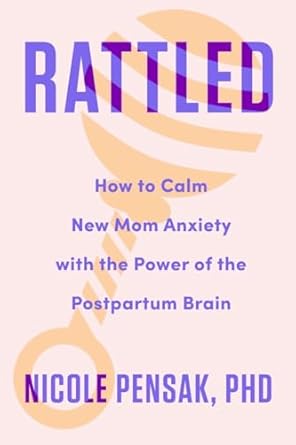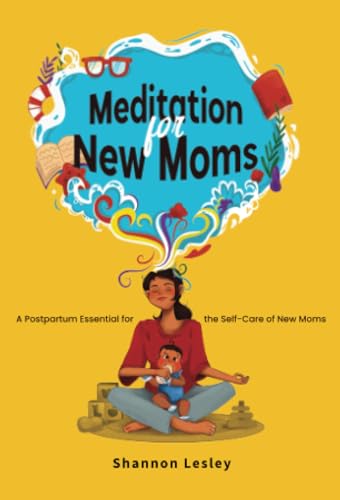How can I manage stress and anxiety as a new mom? Becoming a mother is a profound and beautiful journey, but it can also feel overwhelming, lonely, and full of uncertainty. If you’re a new mom grappling with stress and anxiety, you’re not alone. Many mothers face emotional ups and downs, especially in the early postpartum period.
This post offers heartfelt guidance to help you manage your stress and anxiety with care, compassion, and practical tools that really work.
What are the common causes of stress and anxiety in new moms?
The physical toll of childbirth and sleep deprivation
After childbirth, your body is in recovery mode. Add to that sleepless nights, round-the-clock feedings, and hormonal fluctuations, and it’s no surprise that stress levels rise. Sleep deprivation alone has been linked to increased anxiety and mood swings.
Hormonal changes and mood swings
The sharp drop in estrogen and progesterone levels post-birth can significantly impact your emotional well-being. This is a biological factor, not a personal failing. Many moms feel confused or even guilty for not feeling joyful all the time, but these hormonal shifts are powerful.
The pressure to be a “perfect” mom
Social media, unsolicited advice, and cultural expectations can make you feel like you’re falling short. The truth is, there’s no such thing as a perfect mom. You are exactly what your baby needs—love, attention, and presence.
How can I create a supportive daily routine?
Prioritize basic self-care
Even simple actions like brushing your teeth, showering, or drinking water can feel monumental. Try to create a routine that includes these small but powerful moments. Ask for help when needed.
Set a gentle rhythm for your day
Instead of a rigid schedule, consider a flexible routine with anchor points: morning feeding, afternoon walk, evening wind-down. These cues help both you and your baby feel safe and grounded.
Include mental and emotional check-ins
Take five minutes daily to ask yourself, “How am I feeling?” Journaling, meditating, or simply acknowledging your mood helps release built-up stress.
What coping strategies actually help in moments of anxiety?
Deep breathing and grounding techniques
Try box breathing: inhale for 4 seconds, hold for 4, exhale for 4, hold for 4. Repeat 4 times. This calms your nervous system quickly.
Practice mindfulness in everyday tasks
Washing bottles? Nursing your baby? Use these moments to focus on your breath, the warmth of the water, your baby’s soft skin. This turns ordinary tasks into mini meditations.
Connect with your body
Progressive muscle relaxation, stretching, or even a few minutes of light yoga can ease tension and bring awareness back to your body.
How important is social support for new moms?
Talk to someone who gets it
Find a friend who’s also a mom, a support group, or even an online community. Talking to others who understand can be incredibly validating and healing.
Don’t hesitate to ask for help
It’s not a weakness to ask your partner, family, or a friend to hold the baby while you nap, eat, or shower. You’re not alone in this journey.
Consider professional support
A therapist specializing in postpartum care can offer you tools and a safe space to process your emotions without judgment.

Can lifestyle changes help reduce stress and anxiety?
Nourish your body
Opt for easy, nutrient-dense meals: smoothies, soups, nuts, and fruits. Hydration and blood sugar balance directly affect your emotional stability.
Move your body, even gently
A walk around the block with the stroller, dancing with your baby, or a short postpartum workout can do wonders for your mood.
Protect your rest
Sleep when you can. Even short naps or resting while the baby sleeps can help recharge your mind and body.
When should I seek professional help?
Recognize the signs of postpartum anxiety and depression
If your feelings of sadness, worry, or panic interfere with daily life for more than two weeks, it might be time to seek help. You are not alone, and you deserve support.
Know that help works
Therapy, medication, or a combination of both have been shown to help new mothers recover and thrive. The sooner you seek help, the better you’ll feel.
How can I be kinder to myself?
Ditch unrealistic expectations
No one has it all together, no matter what social media shows. Lower the bar. Celebrate small wins like changing a diaper or soothing a crying baby.
Talk to yourself like you would a friend
Would you criticize a close friend for not doing enough? Speak to yourself with that same kindness and grace.
Create small joy rituals
A hot cup of tea, a favorite show, a warm bath—whatever brings you a moment of peace, make space for it.
Conclusion
Motherhood is both beautiful and challenging. It’s okay to feel overwhelmed. What matters is knowing you don’t have to go through it alone. With small daily practices, supportive relationships, and when needed, professional help, you can find your way back to emotional balance.
You are enough. Right now, as you are.
References
- American Psychological Association. (2023). Stress in America: The State of Our Nation. https://www.apa.org
- Postpartum Support International. (2024). Perinatal Mental Health. https://www.postpartum.net
- Harvard Health Publishing. (2023). Coping with anxiety and depression during pregnancy and after childbirth. https://www.health.harvard.edu
- Mayo Clinic. (2024). Postpartum Depression. https://www.mayoclinic.org
- Centers for Disease Control and Prevention. (2023). Depression Among Women of Reproductive Age. https://www.cdc.gov
FAQs
1. Is it normal to feel overwhelmed as a new mom?
Yes, it’s completely normal. Many moms experience emotional ups and downs.
2. What’s the difference between baby blues and postpartum depression?
Baby blues are short-lived mood swings; postpartum depression is more intense and long-lasting.
3. Can sleep deprivation increase anxiety?
Absolutely. Lack of sleep directly affects emotional regulation and mental clarity.
4. Are support groups really helpful?
Yes, connecting with others who understand can ease isolation and provide comfort.
5. When should I talk to a therapist?
If stress or anxiety impacts your ability to function or lasts more than two weeks, it’s time to reach out.
I’m Cris Coelho, and motherhood has transformed my life!
As a speech therapist and early childhood educator, I’ve always been passionate about child development. But it was becoming a mother that truly opened my eyes to the real challenges and joys of this journey.
Here at Materníssima, I share everything I’ve learned — blending professional knowledge, real-life experience, and a heartfelt touch.
You’re very welcome here! 💕






